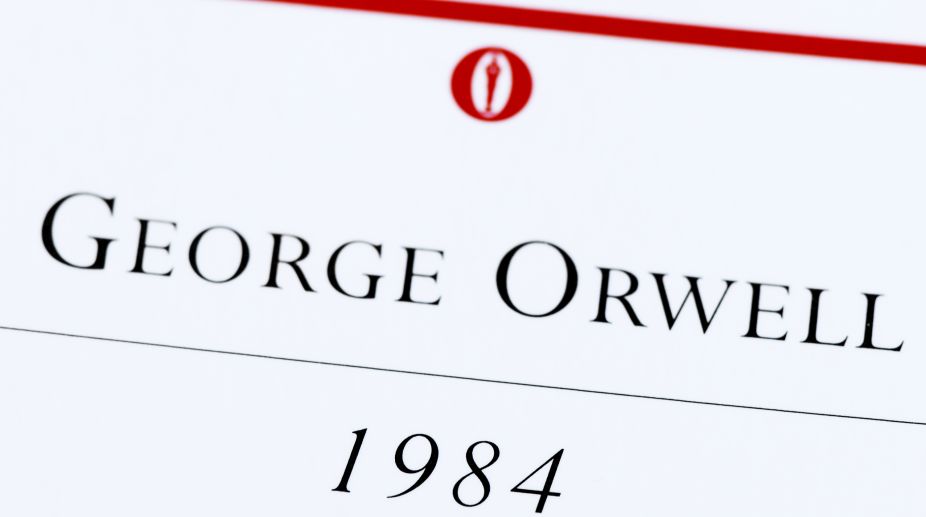1984 Sikh riot victims started getting justice after 2014: Shah
Many inquiry commissions were formed in this regard before 2014, but were all in vain as they did not yield any result, he added.
The world is becoming more and more technology-driven, and the world that 1984 describes seems like one which is perfectly possible to create.

George Orwell's 1984 was published in 1949. (Photo: Getty Images)

George Orwell’s famous book 1984 depicts a dystopian society in the future totalitarian state. Some would say Orwell’s dark vision did not really come to pass. Rhea Banerjee, a student of Class X at The Levelfield School of Suri (where ‘1984’ is a required reading), analyses why 1984 is still relevant.
‘Freedom is the freedom to say that two plus two makes four.’
Advertisement
The book 1984 shows how the individual can be crushed by the might of the state, how the questioning voice can be silenced forever, how the ones who dare to rebel can be wiped off the face of the world.
Advertisement
1984 demonstrates this by telling the tale of a rebel named Winston, who refuses to submit to the all-powerful authorities in a country named Oceania, where every act is monitored and every traitor is punished. Oceania is a world dominated by telescreens and microphones, a world where privacy is the privilege of only the elite few.
Winston’s job is to rewrite history, to change the past so that it reflected current reality, to remove all references to people who have been made ‘unpersons’. However, very soon, his fate unravels as he is accused of Thoughtcrime, a crime committed by those who think and speak about the inadequacies of the country, and effectively the Party, the ruling elite.
Winston also stands guilty of falling in love. The Party rules that no citizen should be capable of any other love than love for Big Brother, the ultimate representation of the Party, the supreme leader. Nobody has ever seen Big Brother, because he is above everyone and everything.
The world that 1984 describes may seem a bit too extreme and unreal. But, perhaps it is a prediction of the world we might inhabit if power were left in the hands of a few. Man’s lust for power can compel them to go to any lengths to retain and increase it. Perhaps this story warns us about the stifling and oppressive world that can be created if those who want absolute power and are paranoid about rebellion are granted what they want.
The world is becoming more and more technology-driven, and the world that 1984 describes seems like one which is perfectly possible to create. Given the increasing power that states are acquiring, it seems a likely scenario. But, it also can be said that the common person is gaining more freedom and more rights, and most countries of the world are turning into democracies.
Will the picture of the future be ‘a boot stamping on a human face- forever’, or will it be of an individual whose every right is enforced? It seems tough to say now, and we might be on the threshold of either.
Advertisement